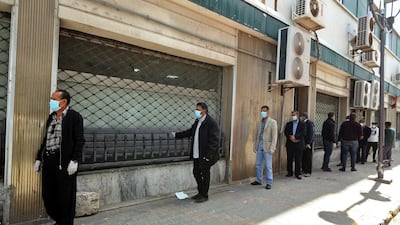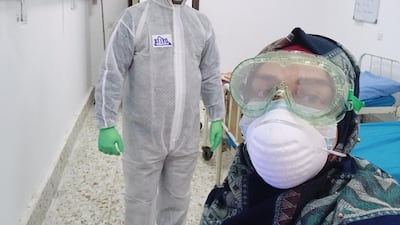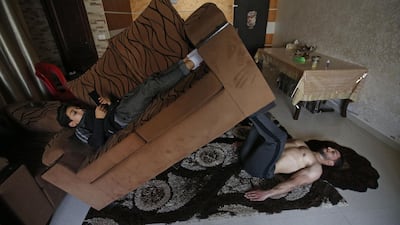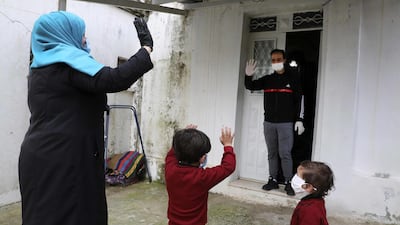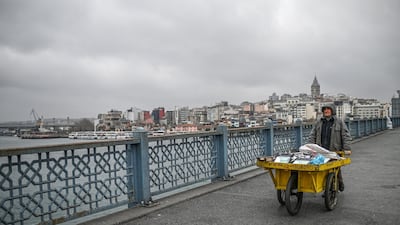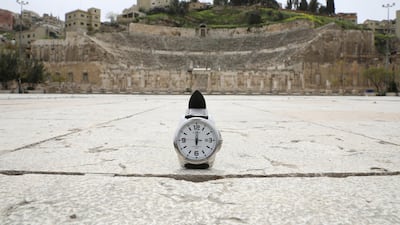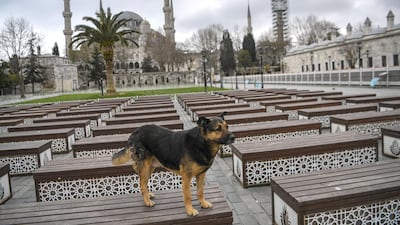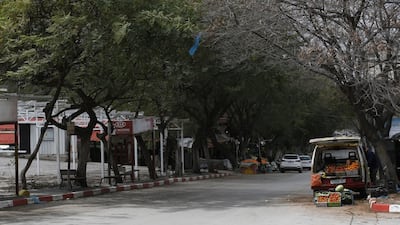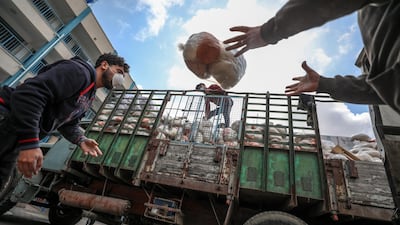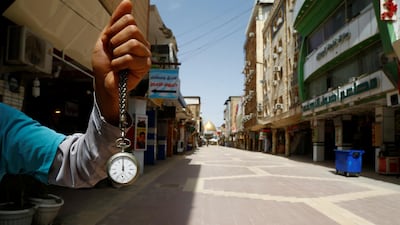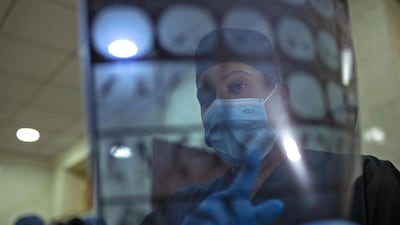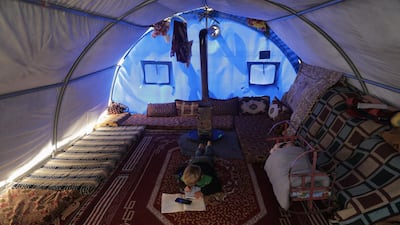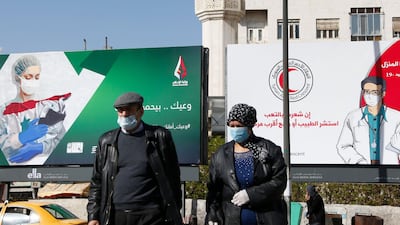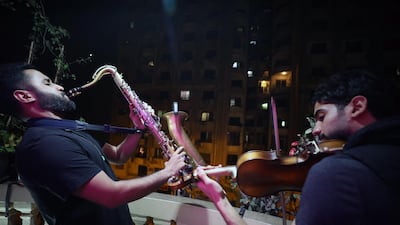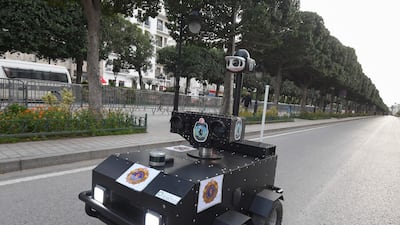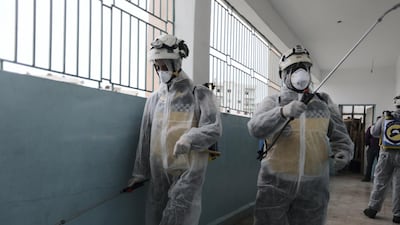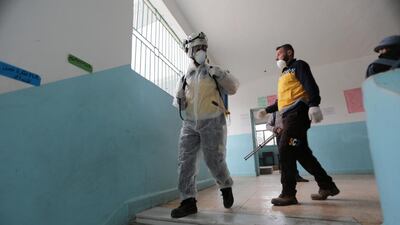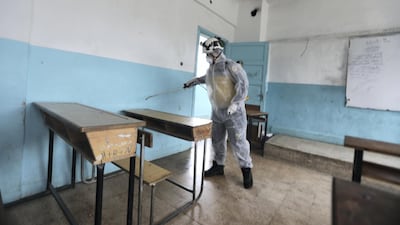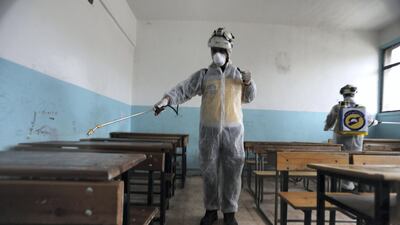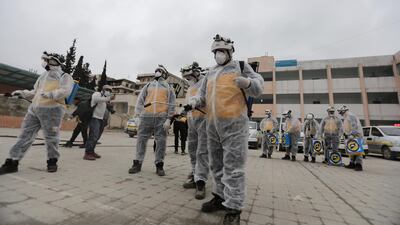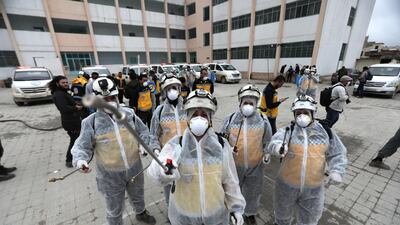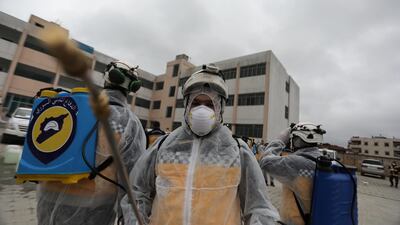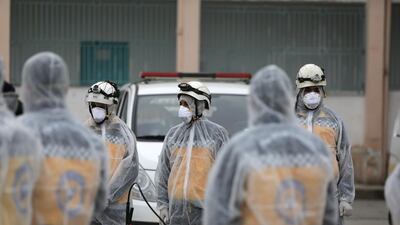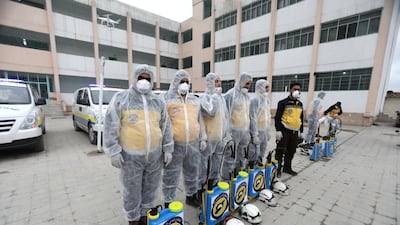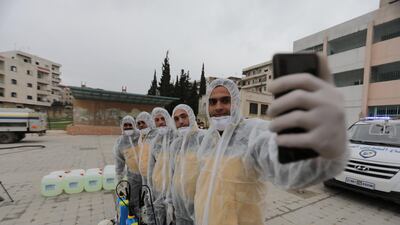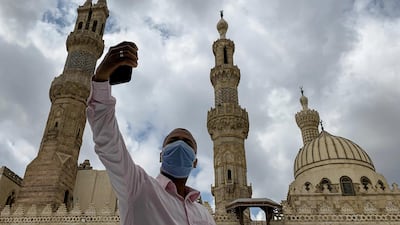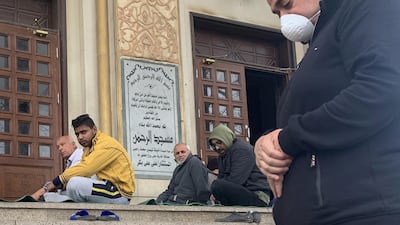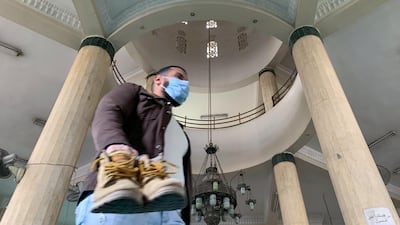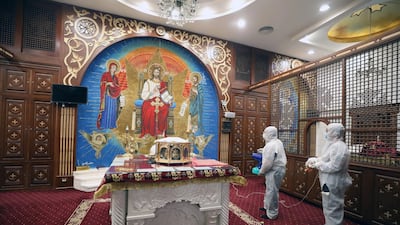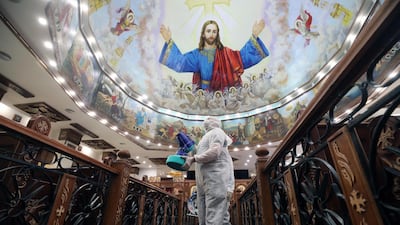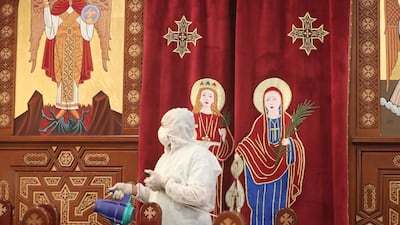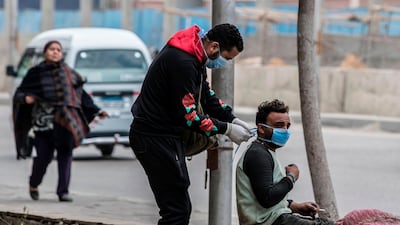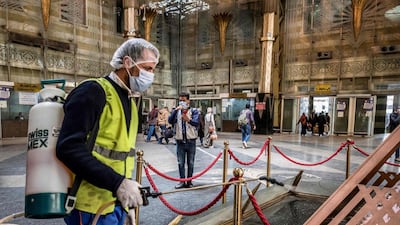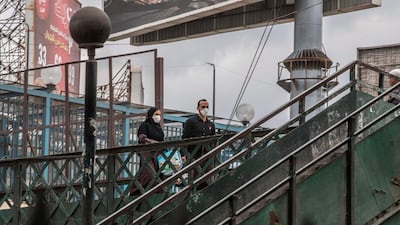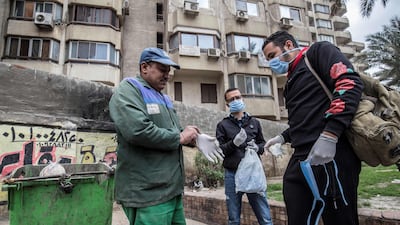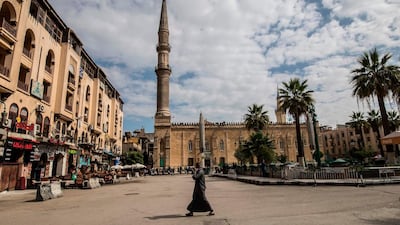Middle East countries continue to report rising numbers of confirmed cases of the novel coronavirus infection, known as Covid-19.
Countries in the Gulf have taken unprecedented measures, so have others in the Middle East. There have been border closures, travel restrictions, lockdowns and curfews.
Since Covid-19 was detected in the Chinese province of Hubei in January, it has spread to more than 100 countries, infecting over 1.4 million people and killing more than 82,000.
How many cases in the Middle East?
The World Health Organisation has urged Middle Eastern states to give them more information on their number of infections amid accusations that some were not reporting all their cases. Ahmed Al Mandhari, WHO regional director for the Eastern Mediterranean, said the approach in the Middle East to fight the coronavirus had so far been "uneven" and that much more should be done.
How is each country managing the crisis?
Iran
Iran is the worst affected country in the Middle East. The coronavirus was killing one person every 10 minutes, a health ministry spokesman said on March 19.
Days of denials gave the virus time to spread as the country marked the 41st anniversary of its 1979 Islamic Revolution with mass demonstrations and then held a parliamentary election in which authorities desperately sought to boost turnout.
Iran began reopening government offices on April 11 after a brief nationwide lockdown to help contain the virus.
Authorities had ordered most government agencies and all non-essential businesses to remain closed for a week after the Nowruz holiday ended on April 4.
On March 26, authorities announced a ban on intercity travel and extended the closure of universities and schools and the suspension of gatherings, amid fears of a second wave of coronavirus infections. The measures came long after other countries in the region imposed more sweeping lockdowns. Many Iranians are still flouting orders to stay home in what could reflect widespread distrust of authorities.
Iran has seen a higher death rate from the virus than in other hard-hit nations. That could be from the initial lack of testing kits and facilities, but it has also been alleged that Iran was previously hiding the true number of infections and deaths.
It has defended it response to the virus, and President Hassan Rouhani said authorities had to consider the effect of mass quarantine efforts on the country's beleaguered economy, which is under heavy US sanctions.
Read more: Coronavirus and Ibuprofen: What you need to know
Iraq
Iraq imposed curfew measures and suspended flights from Baghdad’s international airport. Several governorates also closed their borders.
The government has extended the lockdown that began on March 16 until April 11.
On March 25, authorities said people violating the curfew would be arrested rather than simply fined but videos have been widely shared on social media of Iraqis gathering regardless of the restrictions. The government was forced to deploy troops after hundreds of thousands of people defied the new rules on March 21 and attempted to visit a shrine sacred to Shiite Muslims near Baghdad. On March 26 the influential Shiite cleric Moqtada Al Sadr called for his supporters to observe the restrictions after an appeal from health authorities.
Lebanon
Lebanese Prime Minister Hassan Diab asked security forces on March 21 to enforce stricter measures to keep people at home and prevent gatherings to rein in the coronavirus outbreak. He said this would include patrols and checkpoints and called on residents to go out only if absolutely necessary.
On March 26, the government said all shops and institutions must be closed between 5pm and 7am, with some exceptions that would be announced later.
A state of “general mobilisation” announced on March 15, which allows for the army’s increased involvement in managing the health crisis, was extended until April 12.
Lebanon's government has declared a medical state of emergency and ordered most of the country closed, including airports. Experts warn the country's healthcare system is ill-prepared, as a financial crisis and dollar shortages have for months drained it of critical supplies.
Syria
The Syrian government announced its first death from coronavirus on March 29, although there is some doubt that the country is being transparent.
On March 25 the government began a nationwide curfew from 6pm to 6am. It had already ordered the closure of shops, markets and public transport, allowing only pharmacies to open, and limited deliveries of bread to prevent crowding near bakeries.
Volunteer group the White Helmets has been working to disinfect busy areas in the north-western Idlib region, particularly at risk due to mass displacement caused by a recent government offensive against rebels.
The United Nations and the International Committee of the Red Cross on March 24 called for a nationwide ceasefire to enable an “all-out effort” to stamp out the coronavirus.
Aid groups are working to raise awareness and mitigate risks, and the military said it was distributing masks and gloves to soldiers.
Syria was criticised by aid groups on April 7 for being slow to release prisoners, having only freed a few hundred people jailed for common crimes in what they called a token gesture.
More on Syria: Doctors say regime is hiding scores of coronavirus deaths
Syria's stretched aid groups working '25/7' to prevent Idlib outbreak
Jordan
Jordan imposed a 24-hour nationwide curfew on April 9 starting from midnight, to help stem the coronavirus outbreak, the state news agency reported.
During the lockdown 40 epidemiological investigation teams conducted random coronavirus tests, Assistant Secretary General for Health Care Affairs at the Ministry of Health, head of the Covid-19 dossier, Dr Adnan Ishaq said.
On April 19, some areas were allowed to relax restrictions.
The Tafilah, Karak and Ma’an governorates and Gulf of Aqaba, which have no recorded cases of the virus, will allow its residents to move freely between 10 am and 6pm. The areas will remain closed to outside visitors, however and universities, schools, mosques, churches, fitness centres remain shut.
On April 5, it began deploying drones to fight the pandemic, joining a host of Middle East countries using the technology to enforce curfews, deliver public health announcements and even monitor people's temperatures.
It followed another looser curfew on March 21 after "citizens did not respect directives" calling on them not to leave their homes except for extreme emergencies, although they have lifted during certain periods to allow people to buy food and supplies.
The government ordered all shops to close and all people to stay off the streets for three days. On March 24, it announced people would be allowed out between 10am and 6pm to shop at neighbourhood groceries, bakeries and pharmacies.
The government placed the northern city of of Irbid under quarantine on March 26 after a jump in cases there and announced a fine of 500 dinars for anyone violating the nightly curfew.
The United Nations has reported that some refugees have been infected with the virus.
Turkey
Turkey is the second worst affected country in the region. It imposed a curfew on senior citizens on March 21 and banned restaurants from serving at tables, extending measures against the coronavirus outbreak as the death toll and confirmed cases continued to rise. They added to that a partial curfew on the under 20s on April 3.
It also decided to shut down the borders of 31 cities, including Istanbul, for all vehicles, excluding transit passage and essential supplies such as food, medical and sanitary products, to contain the disease. Restaurants, pastry shops and other food establishments can only offer takeaway service and delivery. All-day weekend curfews in these cities would continue as long as they were necessary, the government said on April 19. A ban on travel between the cities was extended by fifteen days.
As of April 4, all those going out to shops or markets must wear a face mask and are asked to maintain a distance of "three paces" from each other when outside.
On April 7 Turkey's parliament agreed to release almost 100,000 prisoners.
This weekend 31 cities including the capital Ankara and Istanbul were under lockdown for a second time, after President Recep Tayyip Erdogan said all-day weekend curfews would continue as long as they were necessary.
Flights from 46 more countries and northern Cyprus were suspended and picnics and barbecues banned.
Turkey had earlier closed schools, cafes and bars, banned mass prayers and indefinitely postponed matches in its main sports leagues.
More on Turkey: Vinegar gargles and sheep's head soup – Turkey's strange coronavirus remedies
Egypt
Egypt introduced nationwide curfew from 7pm to 6am on March 25 to prevent the spread of the virus in the most populous Arab nation. Cairo, the capital, is one of the most densely populated cities on earth, with more than a fifth of the country's 100 million people.
On April 6 the country allowed some construction workers to return to site in an effort to balance economic and health concerns.
Authorities on April 7 said they were banning the traditional group iftars during the holy month of Ramadan, set to begin on April 23.
All museums and archaeological sites, including the famed pyramids at Giza, are closed until the end of March. Authorities said they would sterilise all sites during the closure.
Egyptian President Abdel Fattah El Sisi on March 22 pleaded with his 100 million people to show more “commitment, responsibility and discipline;" on April 7 he wore a mask a press conference to show his personal comittment to the cause.
Egypt also announced the temporary suspension of Friday prayers and other congregations in all mosques. The Coptic Orthodox Church suspended prayers preceding Easter celebrations later this month as part of efforts to stem the spread of the novel coronavirus. Public transport was halted on April 20 as the festival was celebrated.
Libya
Libya confirmed its first case of the coronavirus on March 24, stoking concern that an outbreak could overwhelm the war-torn country’s already weakened healthcare system.
The authorities running eastern Libya on April 7 confirmed a first case of the coronavirus despite efforts to close borders and impose a curfew to limit social interactions.
On April 4, the former head of Libya's revolution-era National Transition Council died in Cairo at the age of 67 after contracting the novel coronavirus.
The United Nations and nine countries have called on the Tripoli-based government and forces aligned with a rival administration in eastern Libya to cease hostilities to allow health authorities to fight against the new virus.
In a joint statement, the ambassadors of Algeria, France, Germany, Italy, the Netherlands, the UK and the US, as well as the European Union delegation to Libya and the governments of Tunisia and the United Arab Emirates, called for a "humanitarian truce".
The main protagonists in the Libyan conflict initially welcomed the UN ceasefire call but swiftly resumed hostilities.
Fierce fighting has rocked the south of the capital Tripoli in recent days, suggesting the risk of a major coronavirus outbreak is not enough to make guns fall silent.
Authorities in eastern Libya suspended all public transportation and ordered the closure of nonessential businesses. The government in Tripoli declared a nightly curfew starting on Sunday in areas under its control. It announced all mosques, educational facilities and shops would be closed and banned wedding parties, funerals and public transportation.
Coronavirus in the Gulf: everything you need to know about Covid-19 in the GCC
Algeria
Algeria has suspended all international and domestic travel and postponed all international sports events. Cultural and political gatherings have also been called off and a ban was ordered on street demonstrations, scuppering the country's year-long anti-government protest movement. The government has also closed mosques, cafes and restaurants and told half of state employees to stay at home to try to limit the spread of the virus.
The lockdown has been extended until April 29.
The government had imposed a full lockdown in the Blida area, south of the capital Algiers, and a night curfew in the country's remaining 47 provinces until April 19.
The curfew will last from 3 pm until 7 am in the capital Algiers and eight other provinces, and from 7 pm until 7 am in most of the others. The two southernmost provinces, which are almost entirely desert, have no confirmed cases and will not be under curfew.
Morocco
On April 7, Morocco made wearing face masks mandatory for anyone allowed to go out during the coronavirus outbreak. The masks will be sold at a subsidised price of 0.8 dirhams (US$0.08) per unit. Those who fail to comply face prison sentences of up to three months and a fine of up to 1,300 dirhams, the government said.
Sea and land links with European countries, Algeria and China are suspended, and international flights have been grounded. Sporting events are off and schools and universities are closed. There is a ban on gatherings of more than 50 people.
King Mohammed VI of Morocco pardoned 5,654 prisoners and ordered measures to protect inmates from the coronavirus outbreak on April 5.
Lockdown measures were extended to May 20, the government said on April 18, meaning people are only allowed to go out to buy food or medicine, and to staff some key jobs. Schools, mosques, non-essential shops and all entertainment venues have been closed.
The restriction also requires people to present to police documents justifying their reasons for being out.
The government said it will spend an initial 2 billion dirhams (Dh734 million) to help its health system cope with the coronavirus outbreak. It will spend the money on 1,000 more intensive care beds, 550 ventilators and 100,000 testing kits, as well as medicine and other equipment, the ministry added.
The government has put 1 billion dirhams into a special fund for its coronavirus response, which has been topped up with private donations.
On March 27, the European Union said it would reallocate 450 million euros of previously pledged aid to Morocco's coronavirus response.
The government cabinet said earlier it aimed to increase the number of intensive care beds in Morocco to 3,000 from 1,640 now.
On April 5, the justice ministry said the 5,654 detainees that would be freed were selected based in their age, health, good conduct and length of detention
Tunisia
Tunisia ordered a general lockdown on March 20, restricting public movement to counter the spread of the virus. The majority of people have been asked to stay at home and movement between cities has been stopped. This curfew has now been extended to May 3.
On April 4 Tunisia's parliament gave the prime minister special powers for two months to allow for the accelerated adoption of measures to combat virus.
Prime Minister Elyes Fakhfakh will be able to issue decrees without referring to the legislature in an effort to battle the pandemic in the North African country, according to a text adopted by parliament. The interior ministry deployed a police robot to patrol the streets of the capital Tunis and enforce the lockdown.
Coronavirus: everything you need to know about Covid-19 in the UAE
Yemen
Yemen confirmed its first case of coronavirus on April 10. Doctors fear that a lack of disease surveillance systems — shortages of tests, basic supplies and properly trained professionals — is allowing an invisible pandemic to spawn.
The government and Houthi rebels welcomed the UN's call on March 26 for a ceasefire to enable a response to the health crisis but have not made any public steps towards this.
Meanwhile, the US Agency for International Development said it was reducing aid to areas controlled by the Houthis because the rebels were obstructing its distribution.
Israel
Israeli Prime Minister Benjamin Netanyahu announced on April 6 a complete lockdown over the upcoming Passover holiday to control the country’s coronavirus outbreak, but offered citizens some hope by saying he expects to lift widespread restrictions after the week-long festival. Jerusalem's traditional Palm Sunday procession on April 5 was cancelled due to restrictions imposed to contain the spread of the coronavirus.
Israel initially reported the second highest number of cases in the region behind Iran, possibly as a result of intensive testing, but has since been overtaken by Turkey. The country has also imposed strict measures to curb the spread of the virus but its response is clouded by a political deadlock following the March 2 general election.
Palestine
The Gaza Strip confirmed its first two cases of coronavirus on March 22. The development added to fears of a potential outbreak in crowded Gaza, which has an overstretched healthcare system after years of an Israeli-Egyptian blockade, cross-border conflicts with Israel and Palestinian political division. Hamas is racing to build two massive quarantine facilities.
In the Israeli-occupied West Bank, Palestinian security forces arrested 20 Muslim preachers for allegedly violating a ban on holding Friday prayers. The Palestinian Authority, which governs parts of the West Bank, has closed mosques and barred all group prayers.
How is this affecting the region?
Syria's isolated Kurds wait and worry as coronavirus threat grows
Coronavirus risks 'dark days' for Algeria a year after Bouteflika's resignation
Iran's supreme leader accuses US of creating outbreak
US-led coalition forces in Iraq reposition amid pandemic and Iran threat
Lebanon calls in army to enforce lockdown
Gazans fear widespread coronavirus outbreak over sub-par quarantine centres
A tale of two cities: Cairo's residents split on coronavirus response
Is Turkey’s coronavirus 'success' story all it seems?
Israel: limited numbers and 'distancing' at Al Aqsa
Coronavirus: Jordan begins uncontrolled hydroxychloroquine trial
What is coronavirus and how is it spread?
Coronaviruses are a large family of viruses which may cause illness in animals or humans. Covid-19 is only the most recently discovered strain.
In humans, seven coronaviruses are known to cause respiratory infections, including the common cold and more severe diseases such as Middle East respiratory syndrome (Mers) – first recorded in Saudi Arabia in 2012 – and severe acute respiratory syndrome (Sars) which swept through southern China and Hong Kong in 2002 and 2003.
Covid-19 has affected far more people.
But it is far less deadly, with a mortality rate which is believed to be around 3.5 per cent, according to an estimate by the World Health Organisation, compared with about 10 per cent in Sars and 34 per cent in Mers.
The most common symptoms of Covid-19 are fever, tiredness and a dry cough. Some patients may have aches and pains, nasal congestion, sore throat or diarrhoea and, rarely, a runny nose.
Read more: What to do if you think you have coronavirus?
The elderly, and those with underlying medical problems such as high blood pressure, heart problems or diabetes, are more likely to develop serious illness.
According to a doctor who fought the outbreak in Wuhan, high blood pressure is a major risk factor. Out of a group of 170 patients who died in January in Wuhan – in the first wave of casualties caused by the pathogen – about half had hypertension.
A study of 44,000 patients by the Chinese Centres of Disease Control found only 0.2 per cent of children and teenagers died, compared with almost 15 per cent of people above the age of 80.
What should you do if you have symptoms?
The first thing you should do if you feel unwell and suspect you may have Covid-19 is pick up the phone and call the hospital you intend to visit ahead of time.
That way, doctors will be able to assess the risk you pose to staff and other patients. Public transport should be avoided at all costs to avoid spreading the virus further.
If you are identified as a possible carrier, the hospital will likely send an ambulance staffed with paramedics in protective clothing to pick you up.
Anyone suspected of suffering from Covid-19 will be isolated immediately.
A swab is then taken from the patient's nose and throat which is taken in a vial to a laboratory.
Results take between 24 to 36 hours, during which time the patient will remain isolated in the hospital.
